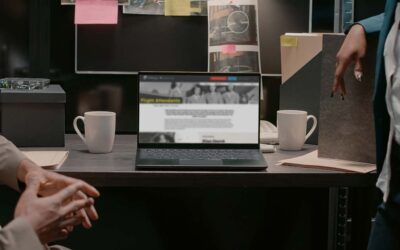Museum Digital Project Consultant: CMS Selection and Implementation

Rachael Cristine Woody
Per earlier posts in this series (the Museum Digital Project Consultant series), museum digital projects are projects that contain at least one digital element. This post will outline where a consultant can help with the selection and implementation of a CMS.
Digital elements can be digitization, working with digital files, cataloging in a CMS, and publishing digital content online. The purpose for these projects can be a mixture of preservation and access, and even if there are some non-digital tasks to the project, the overall project is considered a digital project. The composition of museum digital projects can vary greatly. With this variability in mind, this series highlights several digital project types where working with a museum consultant can be beneficial. Each post in this series will describe the project type and activities involved, and will outline how a consultant can help support the museum staff. This series will review the following project types:
- Assessing digital collections and making recommendations;
- Creating a digital project framework;
- Providing project management for a museum digital project;
- Selecting and implementing a museum Collections Management System (CMS); and
- Delivering digital collections training to museum staff.
When to Consider a Consultant
Consultants are experts in specific areas of museum work. This means that in addition to possessing knowledge and experience in specific areas of work, they also have a wealth of experience working with different sizes and types of museums. Your museum should consider working with a consultant if any of the following are true:
- The expertise needed isn’t presently available on staff.
- The staff don’t have enough time (capacity) to take on the specific activity or project.
- The project has never been done before.
- The project is highly specialized or contains areas of work that are highly specialized and need outside expertise.
Digital Project Consultant Service: Guiding the Selection and Implementation of a Museum CMS
A museum CMS is a necessary tool to facilitate museum collection management and access. The more robust the CMS is, the more effectively the museum staff can execute collection management and access. With each passing year, many CMS products improve and adapt as our overall technical foundation evolves. Collection Management Systems as a tool are getting easier to use and, in many cases, more affordable. However, they’re still very technically complex, and the CMS still vary widely enough that choosing a CMS for the museum remains a critically important decision to get right.
Examples of Where a Consultant Can be Helpful
Working with a consultant the selection and/or implementation of a museum CMS can include all or some of the following activities:
- Conducting a CMS needs assessment
- Drafting a specification outline
- Generating a Request for Proposal (RFP)
- Researching CMS vendors and holding information calls to ascertain fit
- Arranging vendor demonstrations
- Providing a staff scoring rubric
- Delivering a product recommendation
- Supporting contract negotiation and execution
- Supporting or executing CMS functionality enablement and/or customization
- Assisting or leading data migration from one CMS to another
- Assisting in testing and trouble-shooting
The ultimate goal of selecting a museum CMS is to choose a system that meets the majority of the museum needs for a minimum of five years. Choosing a CMS, migrating from one CMS to another, learning a new CMS—each of these activities can be expensive and take up a tremendous amount of staff time. This knowledge increases staff anxiety to select “the right one”. One of the major benefits of working with a consultant is that the consultant will be familiar with the latest CMS vendors, platforms, and functionality. This will help streamline the process as the consultant will be able to more effectively recommend the most applicable products the museum staff for consideration. This will also help solve for the “What if?” factor, as in: What if there’s a better CMS product out there? The consultant can confidently answer that question for staff.
Conclusion
With an outside expert leading you through the selection and implementation process, the museum staff can feel more confident in their choice of CMS. Additionally, with implementation assistance by the consultant, the museum staff will be able to utilize the CMS to its full capabilities much sooner than if it was a staff-led initiative. Finally, with the selection process led by a consultant the ultimate decision-makers can also feel more confident in the chosen tool and may more easily agree to the financial investment required for this type of digital project.

Rachael Cristine Woody
If you’d like to learn more about this topic, register here for Rachael’s webinar, “How to Work with a Consultant on Museum Digital Projects” on September 28, 2022. Ms. Woody advises on museum strategies, digital museums, collections management, and grant writing for a wide variety of clients. In addition to several titles published by Lucidea Press, she is a regular contributor to the Think Clearly blog and an always popular presenter.
Never miss another post. Subscribe today!
Similar Posts
An Introduction to Scrollytelling for Museums
Discover how museums use scrollytelling and digital storytelling platforms to create immersive narratives. This introduction explores key concepts and approaches to interactive storytelling.
Exploring Self-Determinate Multiple Pathways: An Example of Digital Storytelling
Discover how self-determinate multiple pathways offer flexible interactive storytelling in museum exhibits. Learn from the Tenement Museum’s ‘Your Story Our Story.’
Digital Museum Storytelling Example: A Look at Self-Determinate Linear Pathways
Self-determinate characteristics on a linear pathway go beyond brief sidebar topics and instead offer alternative ways to navigate the linear pathway.
Digital Storytelling in Museums: The Prescriptive Linear Pathway in Action
Rachael Woody emphasizes that storytelling is key to engaging audiences with collections. One effective approach? The prescriptive linear pathway—a simple yet powerful method for guiding visitors through digital exhibits.






Leave a Comment
Comments are reviewed and must adhere to our comments policy.
0 Comments